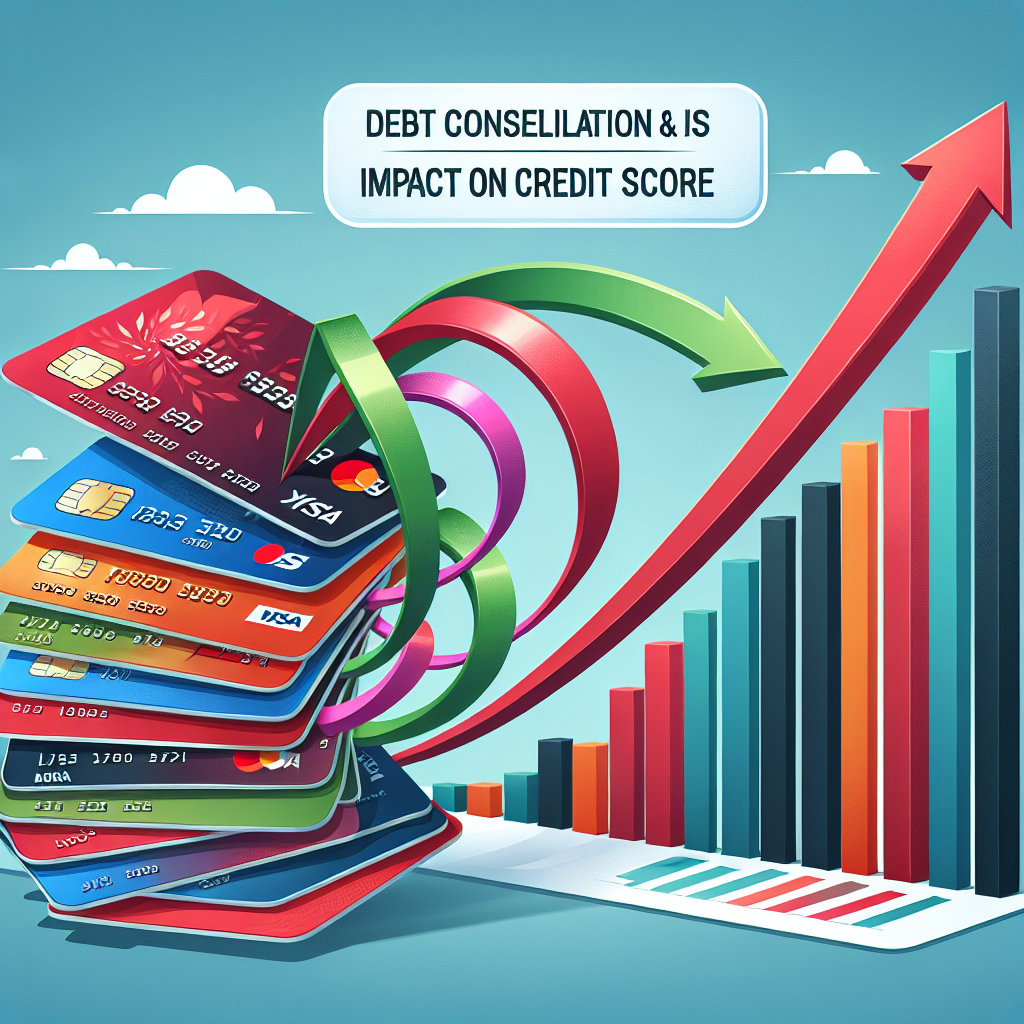Debt consolidation is often touted as a practical solution for managing multiple debts, but how does it affect your credit? This article delves into the intricacies of debt consolidation, explaining how it can influence your credit score, the benefits it offers, and the potential risks involved. By understanding these factors, you can make informed decisions about whether debt consolidation is the right financial strategy for you.
Understanding Debt Consolidation Basics
Debt consolidation involves combining multiple debts into a single loan or payment plan. This can be achieved through methods such as a balance transfer credit card, a personal loan, or a home equity loan. The primary goal is to streamline payments and potentially secure a lower interest rate, making debt more manageable and reducing the overall financial strain. Learn more about debt consolidation here (target="_blank").
Consolidating your debts means you’ll only have to keep track of one monthly payment instead of several. This simplification can be a significant relief if you have been juggling multiple due dates and interest rates. However, it’s crucial to ensure that the consolidated loan offers better terms, such as lower interest rates or extended repayment periods, to truly benefit from this financial strategy.
While the process of debt consolidation might seem straightforward, it’s essential to understand the types of consolidation available and which one suits your financial situation best. For example, a balance transfer might be ideal if you have high credit card debt, while a personal loan could be more beneficial for a mix of credit card and personal loan debts. Explore our guide on choosing the right debt consolidation option.
The Impact on Credit Score Explained
Debt consolidation can have both positive and negative effects on your credit score. Initially, applying for a new credit line or loan could result in a hard inquiry on your credit report, temporarily decreasing your score. However, if managed well, consolidation can lead to an improvement in your credit score over time.
One of the main benefits of debt consolidation is the potential to improve your credit utilization ratio. By paying off credit card balances with a consolidation loan, you can reduce the amount of revolving debt, which is a key factor in credit score calculations. A lower credit utilization ratio can positively impact your credit score, making it more attractive to future lenders. Discover more about how credit utilization affects your score.
On the flip side, if you fail to make timely payments on your consolidated debt, your credit score could suffer. It’s essential to commit to the repayment plan and avoid taking on new debt while repaying the consolidated loan. Consistent, on-time payments will help your credit score recover and potentially improve over time. Read more about the importance of timely payments.
Benefits of Consolidating Your Debts
One of the most appealing benefits of debt consolidation is the reduction in stress and simplification of financial management. By consolidating debts, you can focus on a single monthly payment rather than multiple ones, which can be overwhelming and increase the risk of missed payments. This streamlined approach can bring peace of mind and allow for better financial planning.
Another advantage is the potential savings on interest payments. Consolidation loans often come with lower interest rates compared to credit cards and other high-interest debts. By securing a lower rate, you can reduce the total amount paid over the life of the loan, freeing up resources for other financial goals. Check out our article on how to save money through debt consolidation.
Debt consolidation can also offer the opportunity to improve cash flow. With lower monthly payments spread over a more extended period, you may find more room in your budget for essential expenses or for building an emergency fund. This improved cash flow can enhance your financial flexibility and resilience. Learn how improved cash flow can benefit your finances.
Potential Risks and Considerations
While debt consolidation offers numerous benefits, there are risks to consider. One major risk is the possibility of not addressing the underlying habits that led to accumulating debt in the first place. Without a change in spending behavior and financial management, you might end up in a similar situation in the future. Read about strategies to change spending habits.
Another risk involves the terms and conditions of the consolidation loan. Some loans may include fees, long repayment terms, or higher total costs due to interest over time. It’s crucial to read the fine print and fully understand any fees or penalties associated with the loan. This article outlines what to watch out for in loan terms (target="_blank").
Lastly, consider the impact on your credit score. If you miss payments on your consolidated loan, it can negatively affect your score and make it more challenging to secure credit in the future. Additionally, closing old credit accounts after consolidation can shorten your credit history, which might impact your score. It’s essential to weigh these risks carefully against the potential benefits of debt consolidation.
In conclusion, debt consolidation can be a valuable tool for managing multiple debts and potentially improving your credit score. However, it requires careful consideration and responsible financial management to avoid potential pitfalls. By understanding the basics, weighing the benefits and risks, and exploring your options, you can make an informed decision about whether debt consolidation is the right strategy for your financial situation. Visit our comprehensive debt management resources for more insights and guidance.
Emergency debt help servicesHow to qualify for a consumer proposalAffordable debt repayment plansRelevant LinkRelevant LinkRelevant Link
